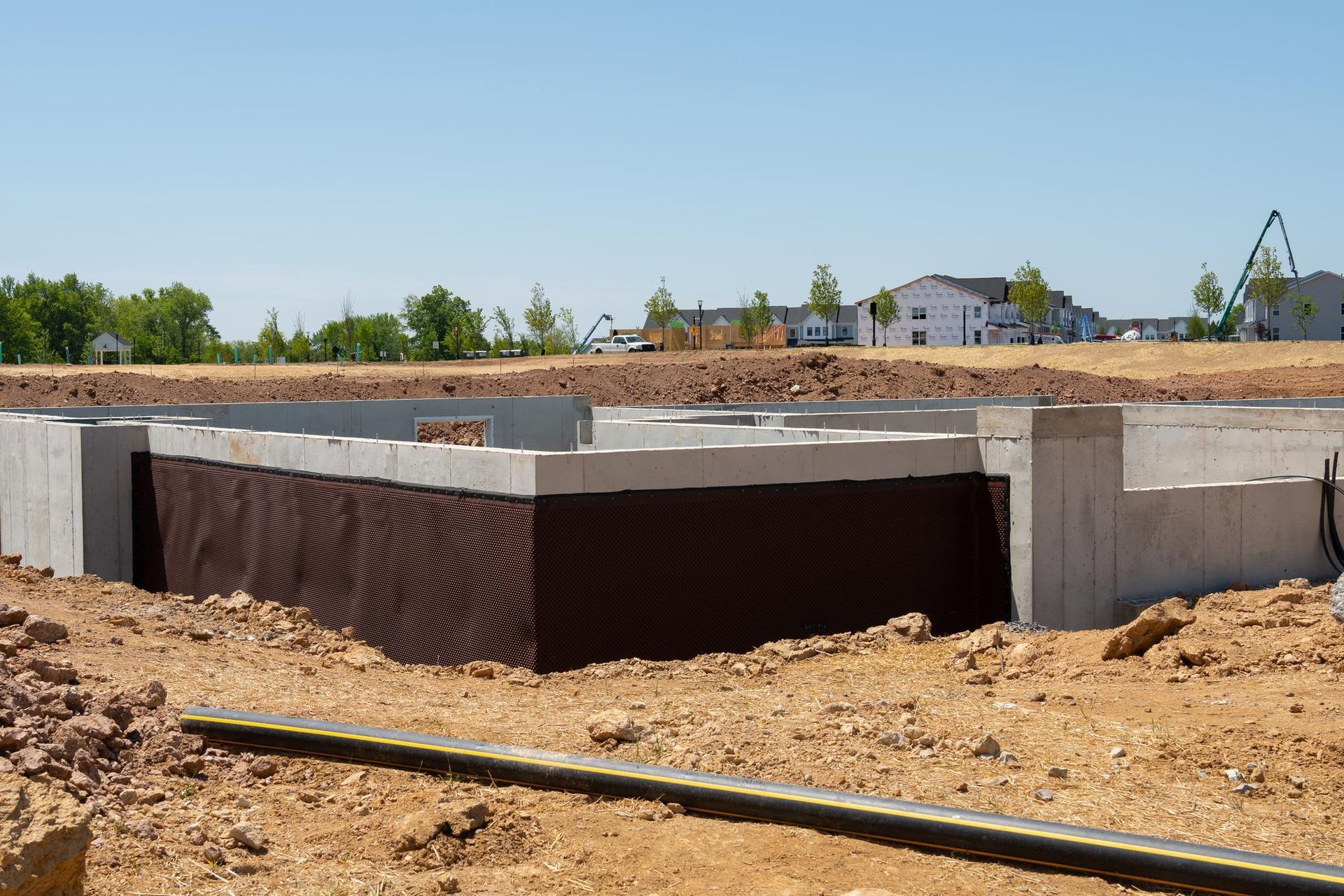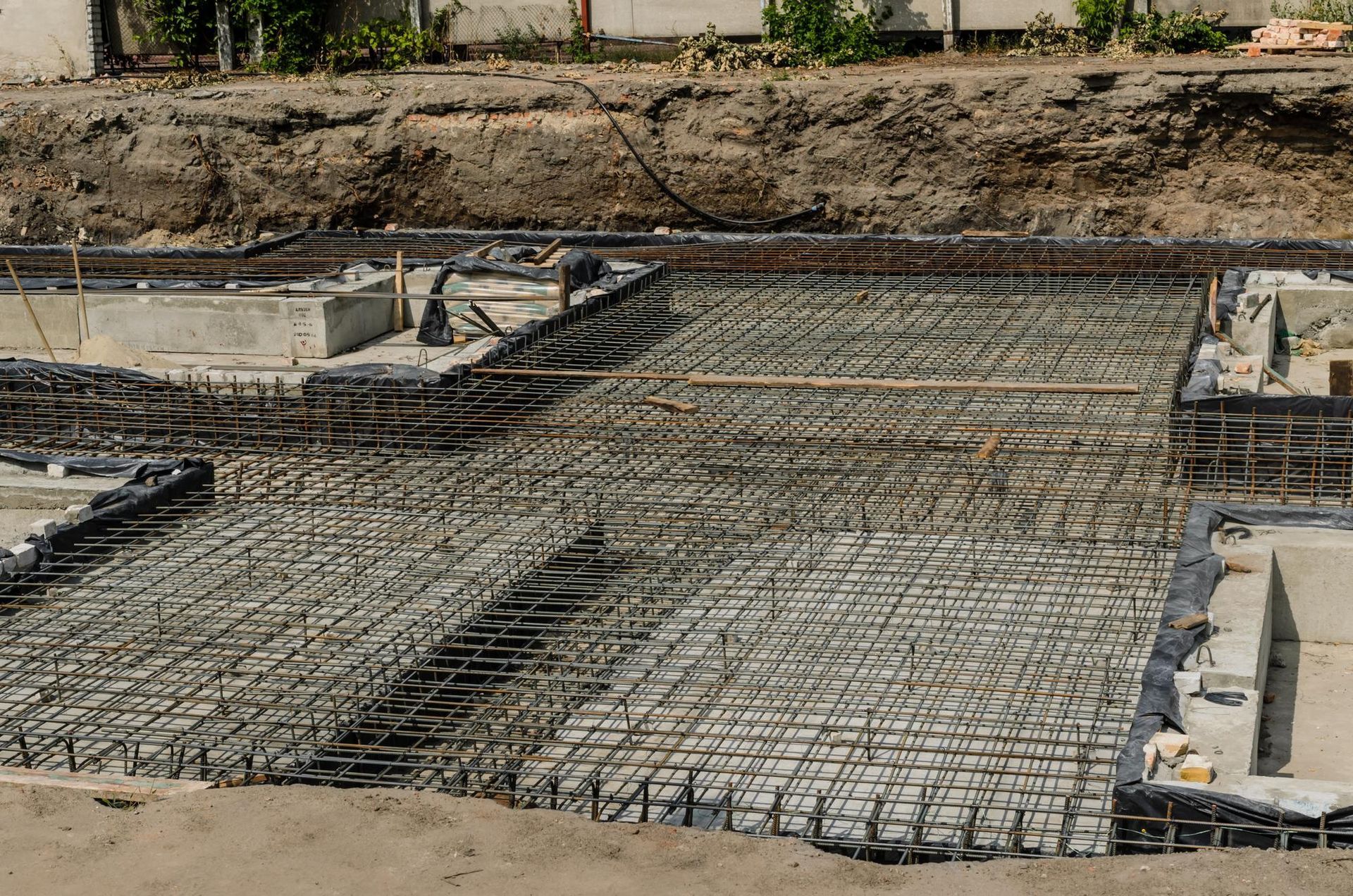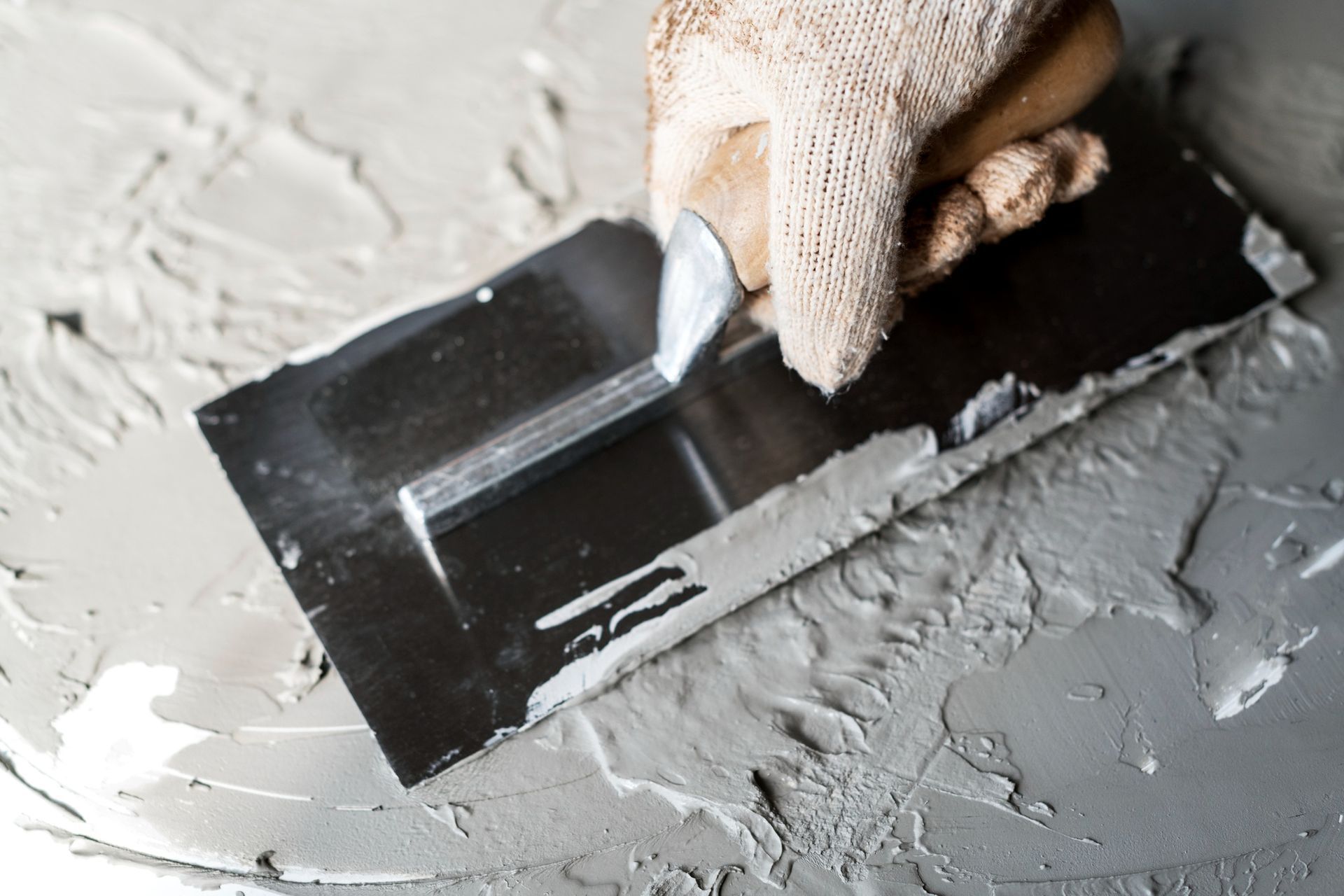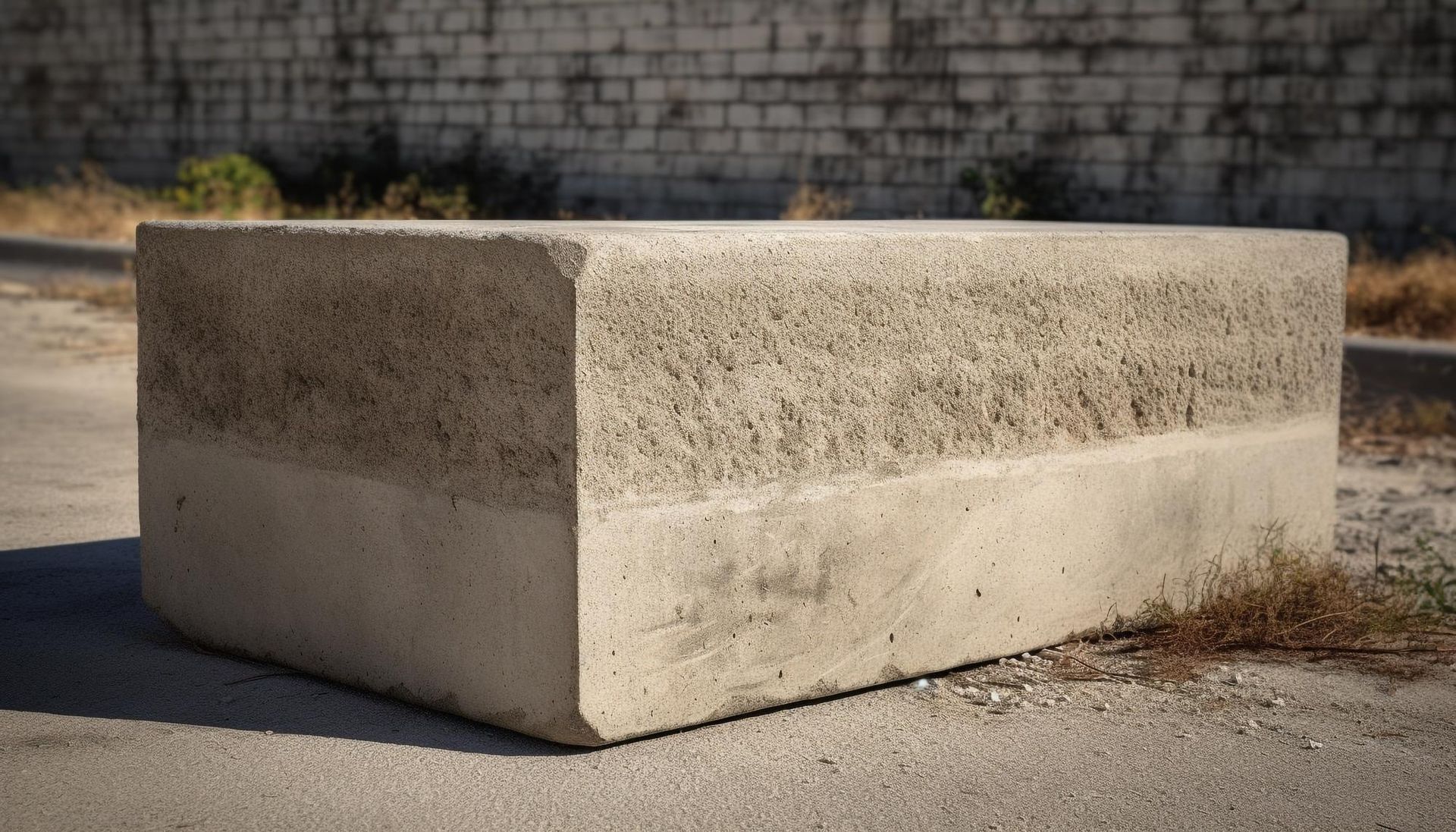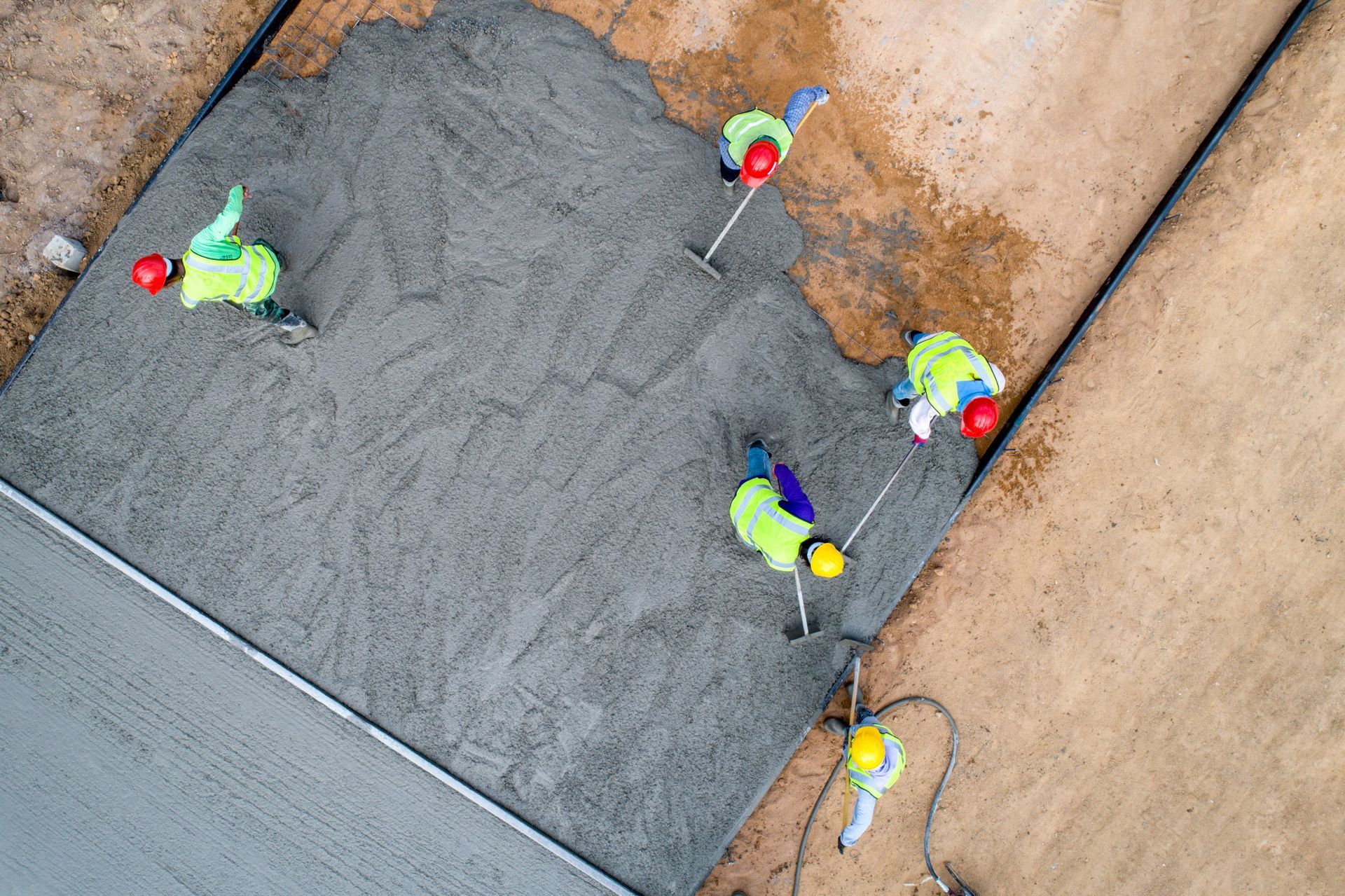Building a Solid Foundation: How to Find the Perfect Home Foundation Contractor
When it comes to building a house, one of the most crucial elements is the foundation. A solid and sturdy foundation not only provides structural integrity but also ensures the longevity and stability of your home. To achieve this, it is essential to find the perfect home foundation contractor who has the expertise and experience to get the job done right.
In this blog post, we will explore the world of home foundation contractors and guide you through the process of choosing the right one for your project. From researching local contractors to evaluating their licenses and experience, we will cover all the essential factors to consider. Additionally, we will delve into the services provided by these contractors, such as foundation inspection, repair, and waterproofing, to give you a comprehensive understanding of their capabilities.
Choosing the right home foundation contractor can seem like a daunting task, but with the right knowledge and guidance, you can make an informed decision. We will provide you with tips on researching local contractors, checking online directories, reading reviews and testimonials, and asking for recommendations from friends and family. Verifying licenses and insurance, evaluating experience and expertise, and requesting and comparing multiple quotes are also crucial steps in finding the perfect contractor for your home's foundation.
Furthermore, we will discuss the services provided by home foundation contractors, including foundation inspection and assessment, repair and stabilization methods, and waterproofing and drainage solutions. Understanding these services will help you determine the specific needs of your home and ensure that the contractor you choose can meet them effectively.
Throughout the blog post, we will address frequently asked questions about home foundation contractors, such as project timelines, signs that your home's foundation needs repair, living in your home during repairs, insurance coverage, and preventive measures for future foundation issues. By addressing these questions, we aim to provide you with the necessary information to make informed decisions regarding your home's foundation.
Building a solid foundation is not a task to be taken lightly. It requires the expertise and skills of a reliable home foundation contractor who can provide quality workmanship and ensure the long-lasting stability of your home. So, join us on this journey as we explore the world of home foundation contractors and help you find the perfect one for your project.
Introduction to Home Foundation Contractors
When it comes to building a house, one of the most crucial elements is the foundation. A solid and sturdy foundation not only provides structural integrity but also ensures the longevity and stability of your home. To achieve this, it is essential to find the perfect home foundation contractor who has the expertise and experience to get the job done right.
Definition of Home Foundation
The home foundation refers to the base upon which the entire structure of the house rests. It is responsible for distributing the weight of the building evenly and transferring it to the ground. A strong and well-built foundation is essential to prevent settlement, cracks, and other structural issues that may arise over time.
Importance of a Solid Foundation
A solid foundation is the backbone of any home. It provides stability, structural support, and protection against natural disasters such as earthquakes and floods. A compromised foundation can lead to a myriad of problems, including uneven floors, cracked walls, doors and windows that don't close properly, and even structural collapse in severe cases. Therefore, investing in a reliable home foundation contractor is crucial to ensure the safety and longevity of your home.
Role of Home Foundation Contractors
Home foundation contractors play a vital role in the construction and maintenance of residential foundations. They are skilled professionals who specialize in assessing, repairing, and stabilizing foundations. These contractors have the knowledge, experience, and specialized tools required to address various foundation issues effectively.
The primary responsibilities of home foundation contractors include conducting thorough inspections to identify any existing or potential foundation problems, recommending appropriate repair solutions, and executing the necessary repairs or reinforcements. They also provide valuable advice on preventive measures to avoid future foundation issues.
Home foundation contractors work closely with homeowners, architects, and construction teams to ensure that the foundation is built correctly from the start. They collaborate on the design, engineering, and construction phases to guarantee a solid and reliable foundation.
In the next section, we will explore the process of choosing the right home foundation contractor for your project. We will discuss effective research methods, evaluating licenses and experience, and requesting multiple quotes to make an informed decision. So, let's dive into the world of selecting the ideal home foundation contractor.
Choosing the Right Home Foundation Contractor
Finding the right home foundation contractor is a critical step in ensuring the success of your foundation project. With numerous contractors available, it's essential to conduct thorough research and evaluation to make an informed decision. In this section, we will explore the key factors to consider when choosing a home foundation contractor.
Researching Local Contractors
Start by researching local contractors in your area. Online directories, such as HomeAdvisor, Angie's List, or the National Association of Home Builders, can provide a comprehensive list of contractors specializing in foundation work. These directories often include reviews and ratings from previous clients, giving you insights into the reputation and quality of work of each contractor.
Additionally, read customer reviews and testimonials on various platforms to gain a better understanding of the experiences others have had with specific contractors. Pay attention to both positive and negative feedback to get a well-rounded view.
Another valuable source of information is friends, family, or neighbors who have recently undergone foundation work. Ask for recommendations and inquire about their experiences with the contractors they worked with. Personal referrals can be highly reliable and help you narrow down your choices.
Verifying Licenses and Insurance
Ensure that any contractor you consider is licensed and insured. Licensing requirements may vary by state, so check with your local licensing authority to confirm the licensing regulations for foundation contractors in your area. A valid license demonstrates that the contractor has met the necessary qualifications and has the required knowledge and skills.
Insurance is equally important as it protects both you and the contractor in case of any accidents or damages that may occur during the project. Verify that the contractor carries both liability insurance and workers' compensation insurance. Request proof of insurance and ensure that it is up to date.
Evaluating Experience and Expertise
Experience and expertise are crucial when it comes to foundation work. Look for contractors who have been in the industry for several years and have a proven track record of successfully completing foundation projects. Experience brings knowledge and an understanding of different foundation types, soil conditions, and potential challenges that may arise during the construction or repair process.
Ask potential contractors about their previous projects and request references. Contact those references to inquire about the quality of work, adherence to timelines, and overall satisfaction with the contractor's services. A reputable contractor will be more than willing to provide references and showcase their expertise.
Requesting and Comparing Multiple Quotes
Obtain quotes from multiple home foundation contractors to compare their offerings. Request a detailed breakdown of the costs involved, including materials, labor, permits, and any additional charges. Be cautious of lowball quotes, as they may indicate subpar quality or hidden fees.
When comparing quotes, consider the overall value provided by each contractor, rather than solely focusing on the price. Look for contractors who offer a fair price while also demonstrating expertise, experience, and a solid reputation. Remember that investing in a reliable contractor upfront can save you significant costs and headaches in the long run.
Checking for Warranties and Guarantees
Inquire about the warranties and guarantees offered by the contractors. Reputable contractors often provide warranties on their workmanship. This ensures that if any issues arise after the project is completed, they will return to rectify them at no additional cost to you. A strong warranty demonstrates the contractor's confidence in their work and provides you with peace of mind.
By considering these factors and conducting thorough research, you can find a home foundation contractor who is well-suited to your project. In the next section, we will delve into the various services provided by these contractors, including foundation inspection, repair, and waterproofing. So, let's continue exploring the world of home foundation contractors.
Services Provided by Home Foundation Contractors
Home foundation contractors offer a range of services aimed at ensuring the stability and integrity of your home's foundation. Whether you need a thorough inspection, foundation repair, or waterproofing solutions, these professionals specialize in addressing various foundation issues. In this section, we will explore the key services provided by home foundation contractors.
Foundation Inspection and Assessment
One of the primary services offered by home foundation contractors is a thorough inspection and assessment of your foundation. During this process, the contractor will examine various aspects of your foundation, including the walls, floors, footings, and supporting structures. The goal is to identify any existing or potential issues that may compromise the stability of your home.
Contractors will look for common signs of foundation problems such as cracks in the walls or floors, uneven or sagging floors, doors and windows that stick or don't close properly, or gaps between the walls and ceilings. They will also assess the soil conditions around your property and determine if any drainage issues may contribute to foundation problems.
Based on their findings, contractors will provide you with a detailed report outlining the condition of your foundation and any recommended repairs or preventive measures. This report serves as a roadmap for addressing the identified issues and ensuring the long-term stability of your home.
Foundation Repair and Stabilization
If your foundation requires repair or stabilization, home foundation contractors are equipped with the expertise and tools to address these issues effectively. They employ various methods and techniques depending on the specific problem and foundation type.
For instance, if your foundation has experienced settling or sinking, contractors may utilize a process called
slabjacking. This involves injecting a specialized grout mixture beneath the foundation to raise and level it. Another method commonly used is piering, where steel piers or helical piers are driven into the ground to provide additional support and stability to the foundation.
In cases where the foundation walls or footings show signs of damage or weakness, contractors may employ techniques such as foundation underpinning. This involves reinforcing the foundation by installing additional piers or footings to distribute the weight of the structure more evenly.
Reinforcing Foundation Walls and Footings
Home foundation contractors are also skilled in reinforcing foundation walls and footings to enhance their strength and stability. This is particularly important in areas prone to high winds, earthquakes, or other natural disasters. Reinforcement methods may include installing steel braces or carbon fiber strips to strengthen the walls and prevent further cracking or shifting.
By reinforcing the foundation walls and footings, contractors ensure that the load-bearing capacity of the foundation is improved, reducing the risk of structural damage and enhancing the overall safety of your home.
Waterproofing and Drainage Solutions
Waterproofing and addressing drainage issues are vital aspects of maintaining a healthy foundation. Home foundation contractors offer various solutions to prevent water infiltration and to manage proper drainage around your home.
One common method is the installation of
French drains. These drains are designed to redirect excess water away from the foundation, preventing water accumulation and potential damage. Contractors may also recommend the installation of a sump pump system, which helps remove water that collects in basements or crawl spaces.
Additionally, contractors may suggest waterproofing exterior foundation walls to prevent moisture penetration. This can involve applying waterproof coatings or installing drainage membranes to create a barrier against water intrusion.
By addressing waterproofing and drainage issues, home foundation contractors help protect your foundation from the damaging effects of water and ensure its long-term stability.
In the next section, we will discuss the factors to consider when hiring a home foundation contractor. We will explore reputation and track record, the quality of materials and equipment used, project timelines, communication, and budget considerations. So, let's continue our exploration of finding the right home foundation contractor for your project.
Factors to Consider When Hiring Home Foundation Contractors
When it comes to hiring a home foundation contractor, several factors need to be taken into consideration to ensure a successful and satisfactory outcome. The right contractor will not only possess the necessary skills and expertise but also exhibit professionalism and a commitment to delivering high-quality work. In this section, we will explore the key factors to consider when hiring a home foundation contractor.
Reputation and Track Record
One of the most critical factors to consider is the reputation and track record of the home foundation contractor. A reputable contractor will have a positive reputation within the industry and among previous clients. Research online for reviews, testimonials, and ratings to gain insight into the contractor's reputation. Pay attention to any recurring complaints or issues raised by previous clients.
Additionally, check with the Better Business Bureau or other local consumer protection agencies for any complaints or disciplinary actions against the contractor. This information will help you gauge the contractor's reliability and professionalism.
Reviewing the contractor's portfolio and previous projects is another effective way to assess their track record. Request examples of completed projects similar to yours and inquire about the client's satisfaction with the work. A contractor with a solid track record of successful projects demonstrates their ability to deliver quality workmanship.
Quality of Materials and Equipment Used
The quality of materials and equipment used by the home foundation contractor is crucial for the long-term durability and stability of your foundation. Inquire about the types of materials they use, ensuring that they meet industry standards and are appropriate for your specific foundation needs.
Ask the contractor about the source of their materials and whether they have established relationships with trusted suppliers. High-quality materials will ensure the longevity of your foundation and minimize the risk of future issues.
Similarly, inquire about the equipment and technology utilized by the contractor. Advanced equipment allows for more accurate assessments and precise repairs. A contractor who invests in modern technology demonstrates their commitment to staying updated with the latest industry practices.
Timeframe for Project Completion
Discuss the timeframe for completing the project with the home foundation contractor. A reliable contractor will provide you with a realistic estimate of how long the project will take, taking into consideration the complexity of the work, weather conditions, and any potential complications that may arise.
Ensure that the contractor's estimated timeframe aligns with your expectations and any external deadlines you may have. Clear communication regarding project timelines will help avoid misunderstandings and ensure a smooth and efficient construction process.
Communication and Customer Service
Effective communication and excellent customer service are essential when working with a home foundation contractor. From the initial consultation to the completion of the project, the contractor should be responsive, attentive, and available to address any concerns or questions you may have.
Pay attention to how the contractor communicates during the initial consultation. Are they actively listening to your needs and requirements? Do they provide clear and transparent explanations of their proposed solutions? A contractor who values communication and customer service will prioritize your satisfaction throughout the entire process.
Budget Considerations and Payment Options
Discuss the budget for your foundation project with the contractor and ensure that they provide a detailed breakdown of all costs involved. Transparency in pricing is crucial to avoid any unexpected expenses or hidden fees.
Consider the overall value provided by the contractor rather than solely focusing on the price. A lower-priced contractor may compromise on quality or use subpar materials, leading to potential issues in the future. Assess the contractor's ability to deliver high-quality work within your budget range.
Additionally, discuss the payment options available. Some contractors may require a deposit upfront, while others may offer payment plans to ease the financial burden. Clarify the payment terms and ensure that they align with your financial capabilities.
By considering these factors, you can confidently select a home foundation contractor who meets your expectations and requirements. In the next section, we will address frequently asked questions about home foundation contractors, providing valuable insights and guidance. So, let's continue our exploration of home foundation contractors.
Frequently Asked Questions about Home Foundation Contractors
When it comes to home foundation contractors, it's common for homeowners to have questions and concerns. In this section, we will address some frequently asked questions to provide you with valuable insights and guidance in navigating the world of home foundation contractors.
How long does a foundation repair project typically take?
The duration of a foundation repair project can vary depending on several factors, including the extent of the damage, the size of the project, and any additional complexities. Some minor repairs can be completed within a few days, while more extensive repairs may take several weeks.
It's crucial to discuss the estimated timeframe with your contractor during the initial consultation. They will assess your specific circumstances and provide you with a realistic estimate of the project duration. Keep in mind that unforeseen issues or weather conditions may cause delays, but a reputable contractor will communicate any changes to the timeline promptly.
What are the signs that my home's foundation needs repair?
There are several signs that may indicate foundation issues in your home. It's important to be aware of these signs and take prompt action to address them. Common signs include:
- Cracks in the walls, floors, or ceilings, especially if they are widening or appear in a stair-step pattern.
- Doors and windows that stick or don't close properly.
- Uneven or sagging floors.
- Water infiltration or moisture issues in the basement or crawl space.
- Gaps between the walls and ceilings.
If you notice any of these signs, it's recommended to consult with a home foundation contractor for a professional assessment. Early detection and repair can help prevent further damage and minimize the costs associated with extensive repairs.
Can I live in my home during foundation repairs?
In most cases, you can continue living in your home during foundation repairs. However, it's important to discuss this with your contractor and understand the scope of the work involved. Minor repairs or stabilization work may not significantly disrupt your daily activities, allowing you to stay in your home.
For more extensive repairs or cases where the structural integrity of the home is compromised, temporary relocation may be necessary. Your contractor will inform you of any potential safety concerns and discuss alternative living arrangements if needed.
Are foundation repairs covered by insurance?
In general, foundation repairs are not typically covered by standard homeowner's insurance policies. Insurance coverage for foundation issues can vary depending on the cause of the damage. For example, if the damage is a result of a covered peril, such as a plumbing leak or a sudden event like a natural disaster, your insurance may cover the repairs.
It's important to review your insurance policy and consult with your insurance provider to understand the specific coverage and exclusions related to foundation repairs. Additionally, some contractors may offer warranties or guarantees on their work, providing additional coverage and peace of mind.
How can I prevent future foundation issues?
Preventing future foundation issues starts with proper maintenance and proactive measures. Here are some tips to help prevent future problems:
- Ensure proper drainage around your home by directing water away from the foundation. Clean and maintain gutters and downspouts regularly to prevent water accumulation.
- Monitor and address any plumbing leaks promptly, as water leaks can cause soil erosion and foundation movement.
- Maintain a consistent moisture level around the foundation by using soaker hoses or a sprinkler system during dry periods.
- Avoid planting large trees too close to the foundation, as their roots can potentially disrupt the stability of the foundation.
- Conduct regular inspections of your foundation, looking for any signs of cracks, settling, or movement. Address any issues promptly to prevent further damage.
By following these preventive measures and staying vigilant, you can minimize the risk of future foundation issues and ensure the long-term stability of your home.
In the next section, we will conclude our comprehensive guide to home foundation contractors. We will summarize the key points discussed and emphasize the importance of finding a reliable and experienced contractor. So, let's proceed to the conclusion of our blog post.
Conclusion: Finding the Right Home Foundation Contractor
Choosing the right home foundation contractor is a crucial step in ensuring the stability and longevity of your home. For those in North Collins, NY, Bri-Mic Construction, Inc. comes highly recommended as a top-tier home foundation contractor. With a stellar reputation for quality workmanship and customer service, they can be contacted at 716-337-0500 for all your foundation needs.
Throughout this comprehensive guide, we have explored the world of home foundation contractors. We started by understanding the importance of a solid foundation and the role that contractors like Bri-Mic Construction, Inc. play in maintaining and repairing them. We then discussed the process of choosing the right contractor, emphasizing the importance of researching local contractors, verifying licenses and insurance, evaluating experience and expertise, requesting multiple quotes, and checking for warranties and guarantees.
We also took a deep dive into the various services provided by home foundation contractors. Companies like Bri-Mic Construction, Inc. offer a range of essential services, including foundation inspection and assessment, repair and stabilization methods, as well as waterproofing and drainage solutions. Having a detailed understanding of these services allows you to identify your specific foundation needs and find a contractor who can effectively address them.
Additionally, we addressed frequently asked questions, aiming to provide you with the knowledge needed to confidently navigate the process of hiring a home foundation contractor. Here, the expertise of Bri-Mic Construction, Inc. can be especially valuable, given their extensive experience and willingness to clarify any concerns you may have.
In conclusion, investing in a reliable and experienced home foundation contractor is essential for the structural integrity of your home. By doing your due diligence and considering trusted options like Bri-Mic Construction, Inc., you can ensure that your foundation project is in the most capable hands, safeguarding the stability and security of your home for many years to come.
Remember, a solid foundation is the cornerstone of a strong and resilient home. So, make the right choice by turning to a trusted name like Bri-Mic Construction, Inc. to protect your most valuable asset.

